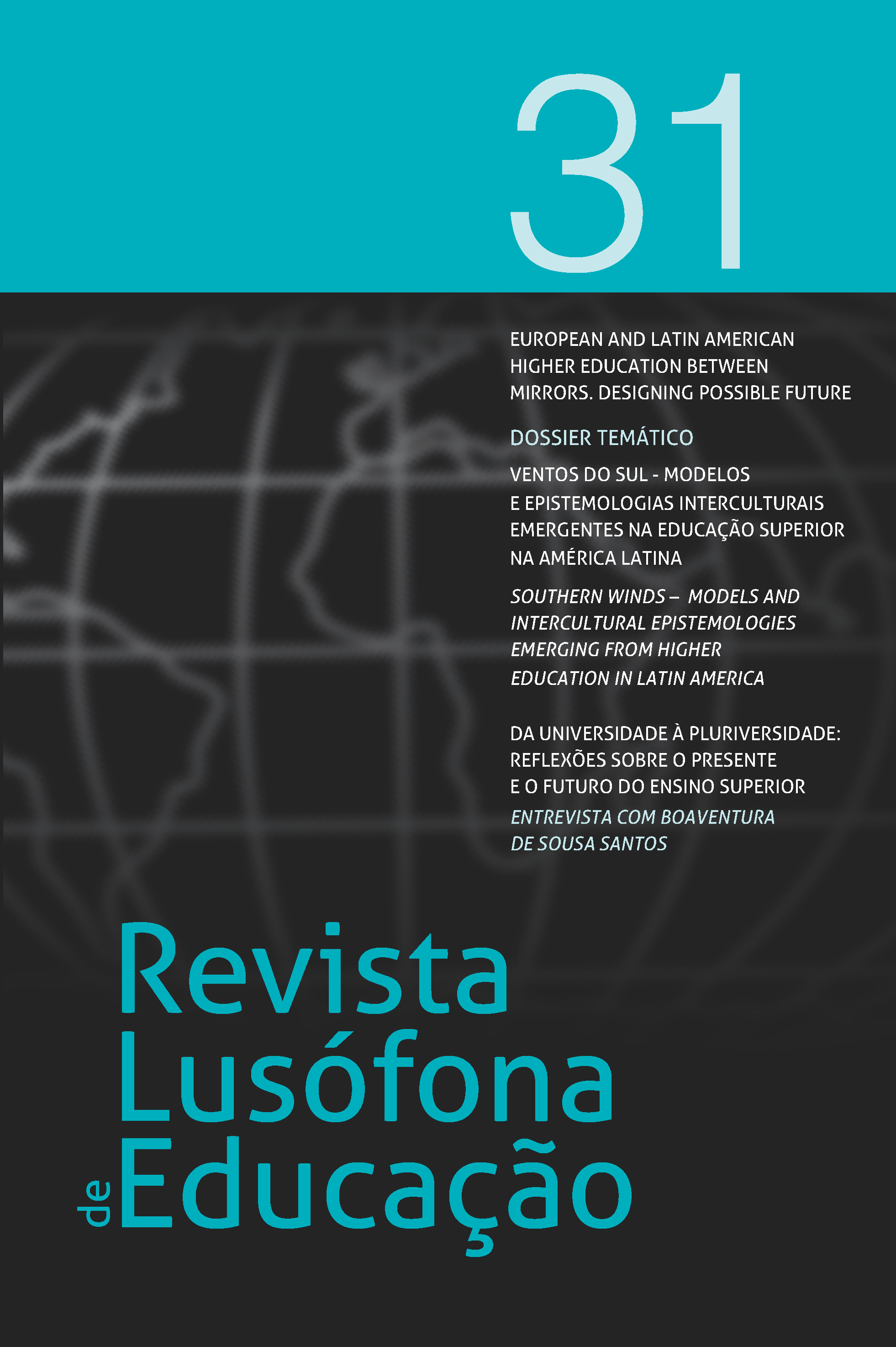European and Latin American Higher Education Between Mirrors. Designing possible futures
Resumen
This paper discusses some of the analyses and proposals presented by a large network of European and Latin American researchers that developed a broad programme on institutional equity and social cohesion in higher education institutions, between 2011 and 2013. The impact of higher education expansion and diversification has been felt and questioned differently in the various countries, due to their history and place in the world system, to their education systems, to their organization, or their ability to react, to mobilize resources and to implement relevant policies. The article has Europe and Latin America as privileged locus of analysis, but acknowledges that many of the characteristics and issues described are part of a global agenda. It is assumed that neoliberalism has failed as a model of economic development, but it is recognized that, as policy for culture, it is (still) in force, derived from having become a common sense that shapes the actions of governments and education policy-makers. The University, as well as higher education policies, may have another sense and give an important contribution to the construction of fair societies, fighting for equality among human beings, fully respecting their differences. This is the sense of the nine proposals for a radically democratic and Citizen University the paper ends with.
Keywords:
higher education; academic networks; Europe; Latin America; citizen university.
Descargas
-
Los autores y las autoras conservan los derechos de autor, sin ningún tipo de remuneración, y conceden a la revista el derecho de primera publicación. La obra se publica simultáneamente bajo la Licencia Creative Commons Atribución 4.0 Internacional (CC BY 4.0), que permite a otros compartir (copiar y redistribuir el material en cualquier medio o formato) y adaptar (remezclar, transformar y crear a partir del material para cualquier propósito, incluso comercial), siempre que se reconozca la autoría y la publicación inicial en la RLE.
-
Los autores y las autoras están autorizados a celebrar contratos adicionales de manera separada para la distribución no exclusiva de la versión de la obra publicada en esta revista (por ejemplo, depositarla en un repositorio institucional o publicarla como capítulo de libro), siempre que se reconozca la autoría y la publicación inicial en la RLE.
-
Los autores y las autoras tienen permiso y son alentados/as a publicar y difundir su trabajo en línea (por ejemplo, en repositorios institucionales o en su página personal), ya que esto puede aumentar la visibilidad y la citación del trabajo publicado (véase El Efecto del Acceso Abierto).








